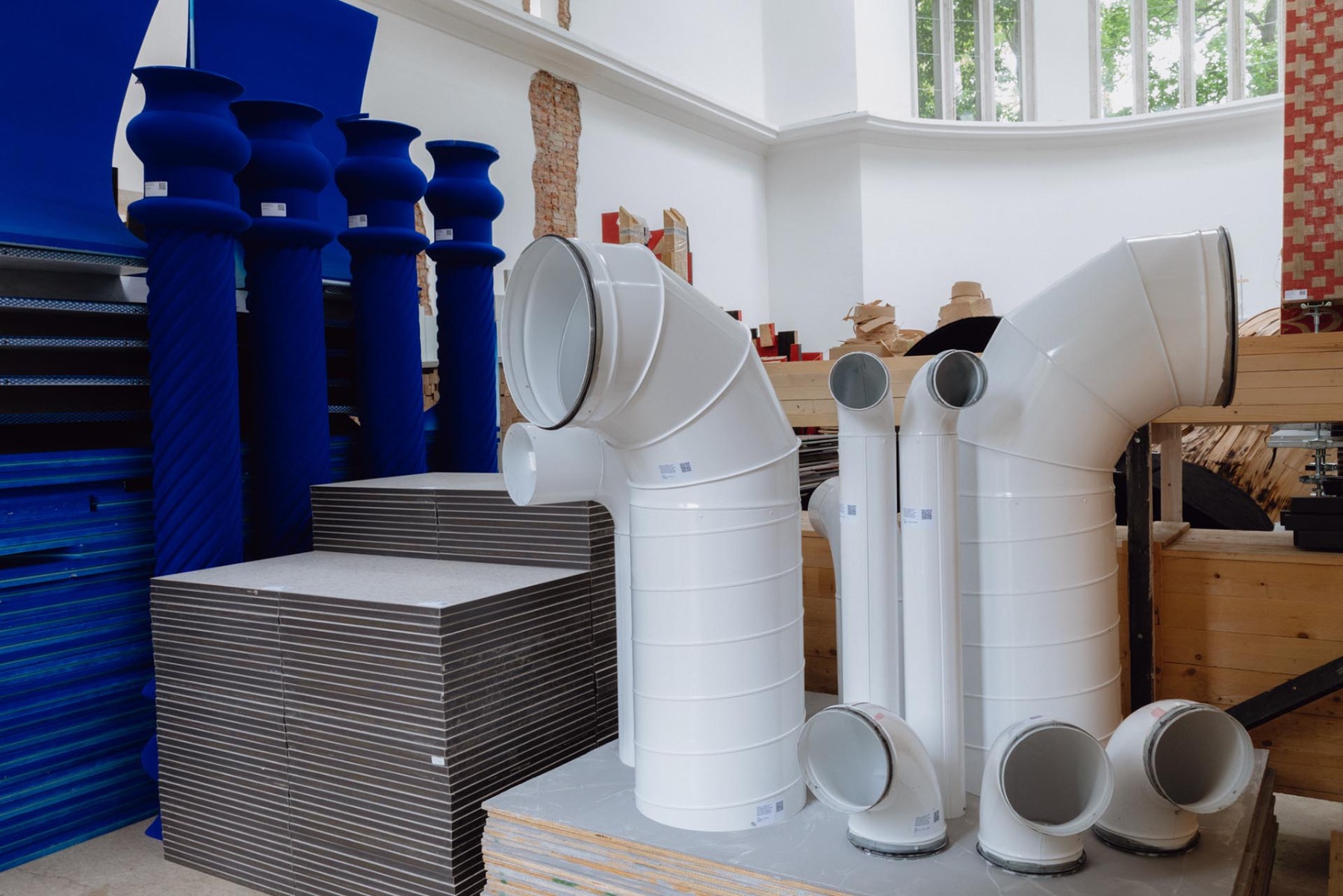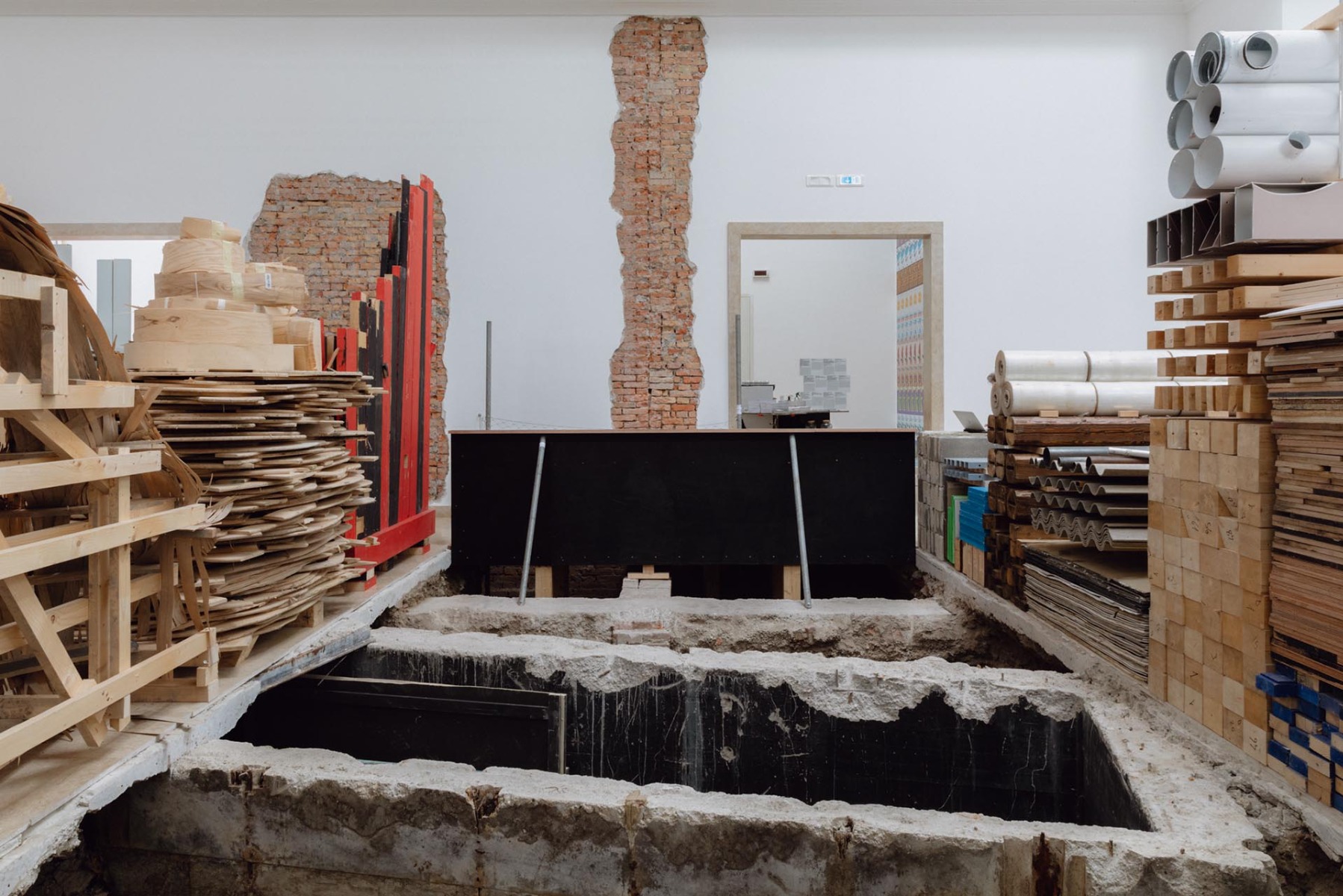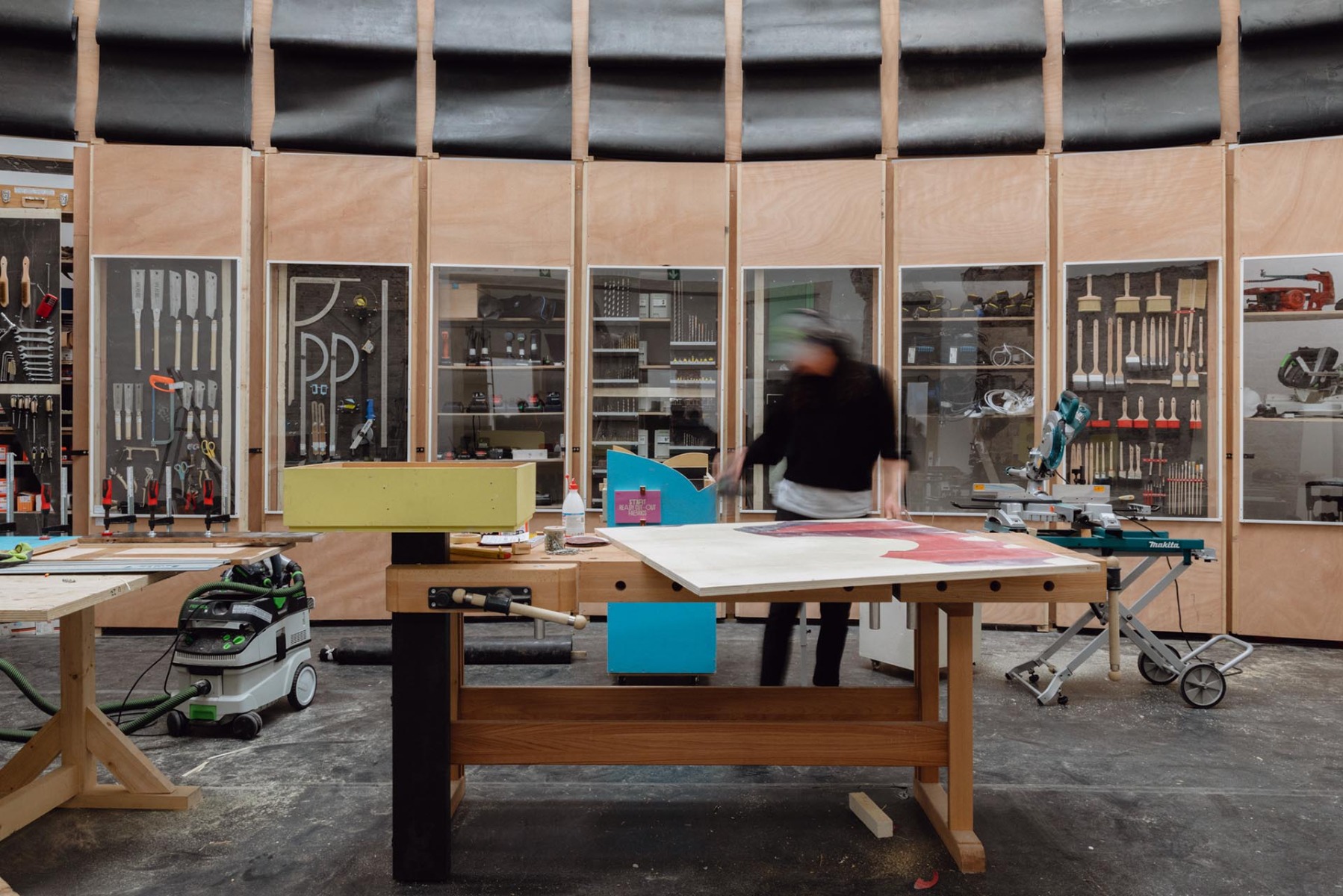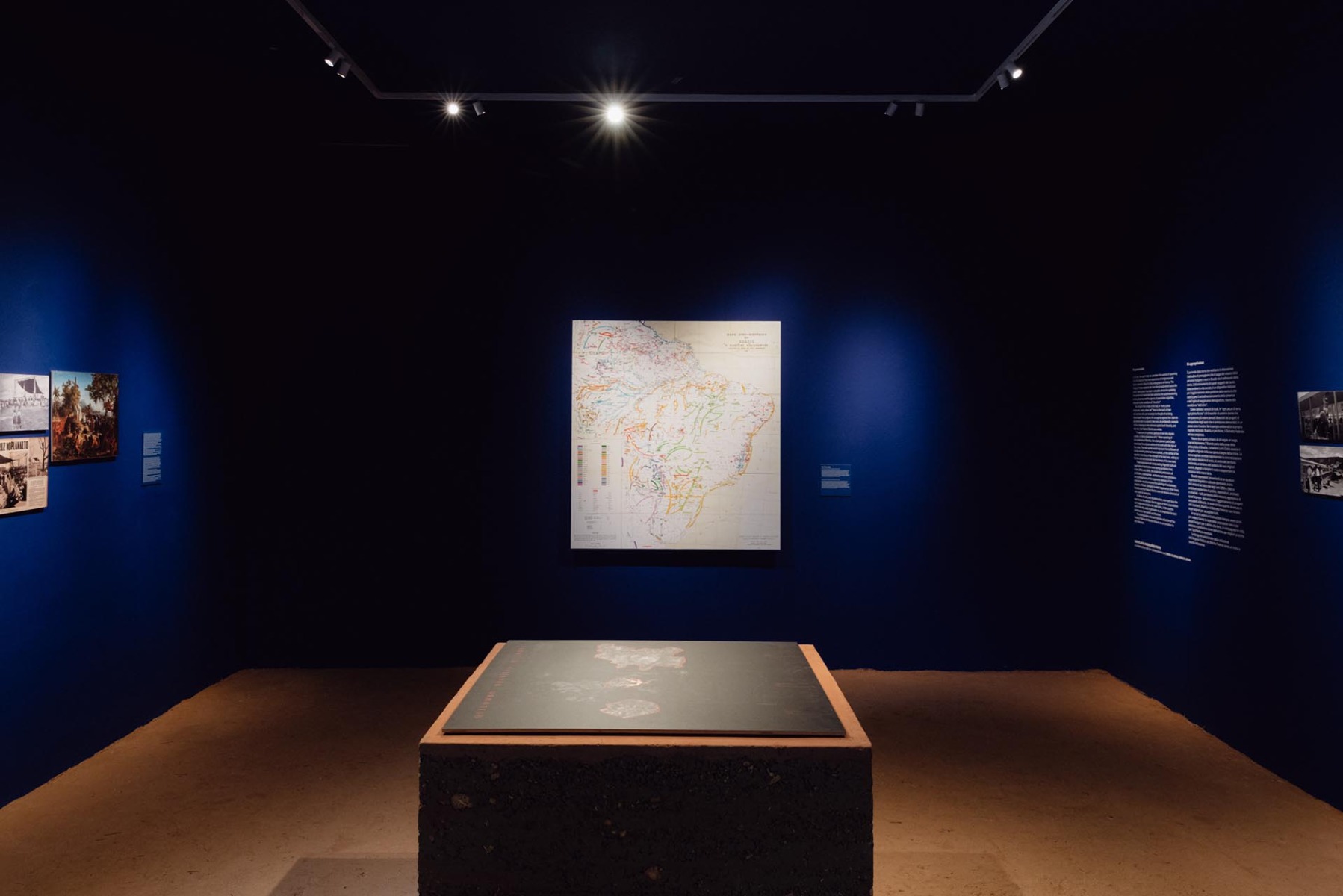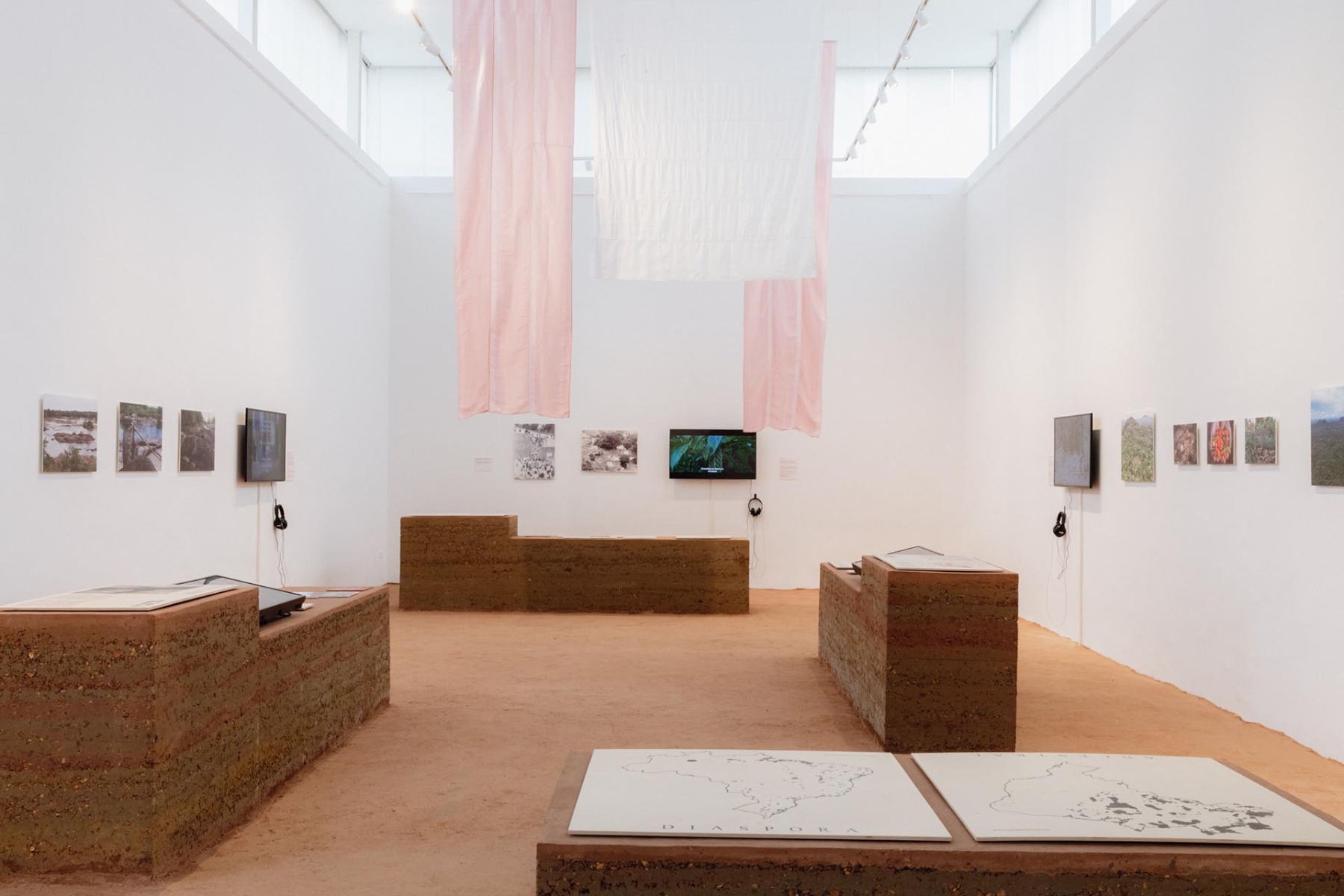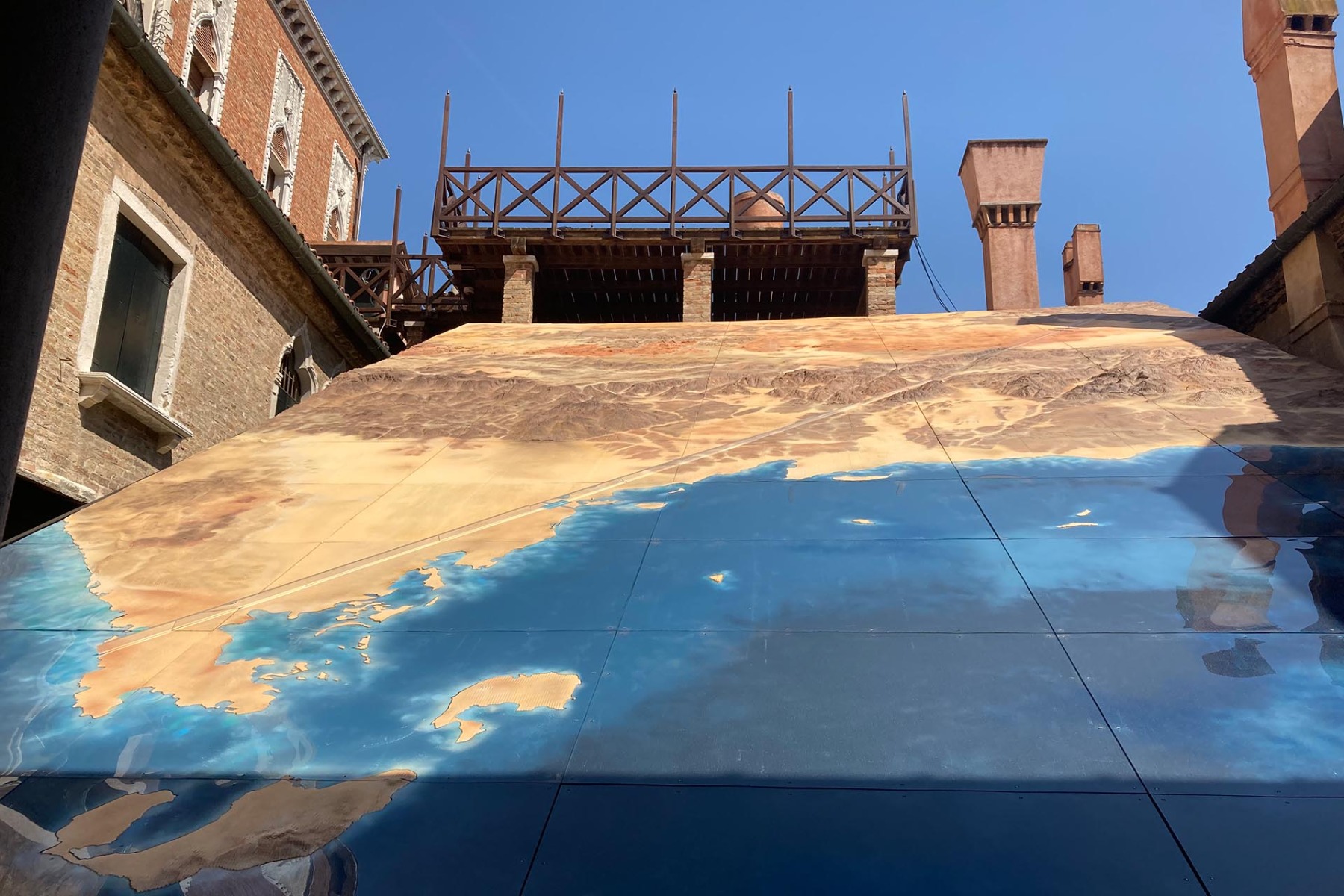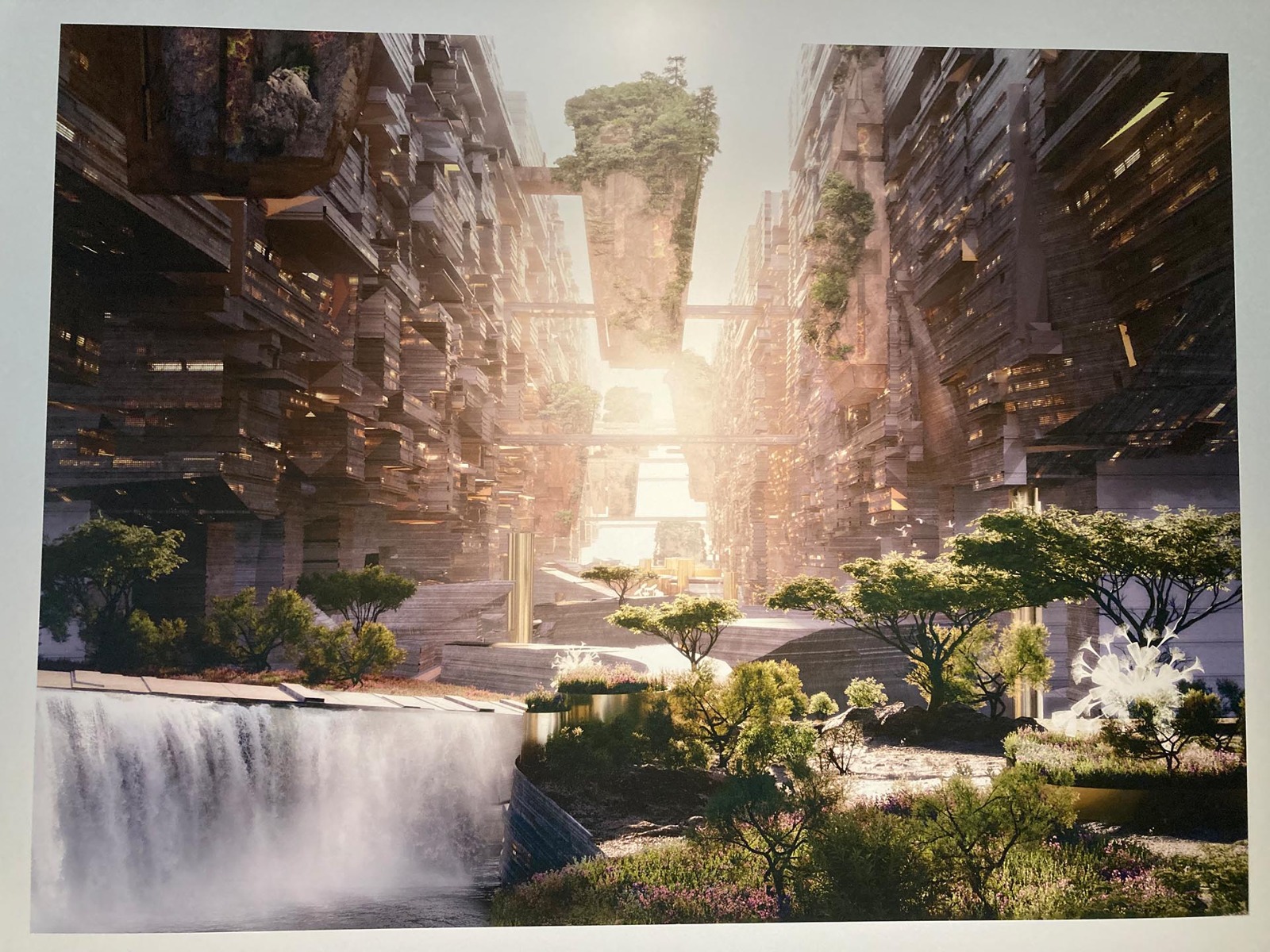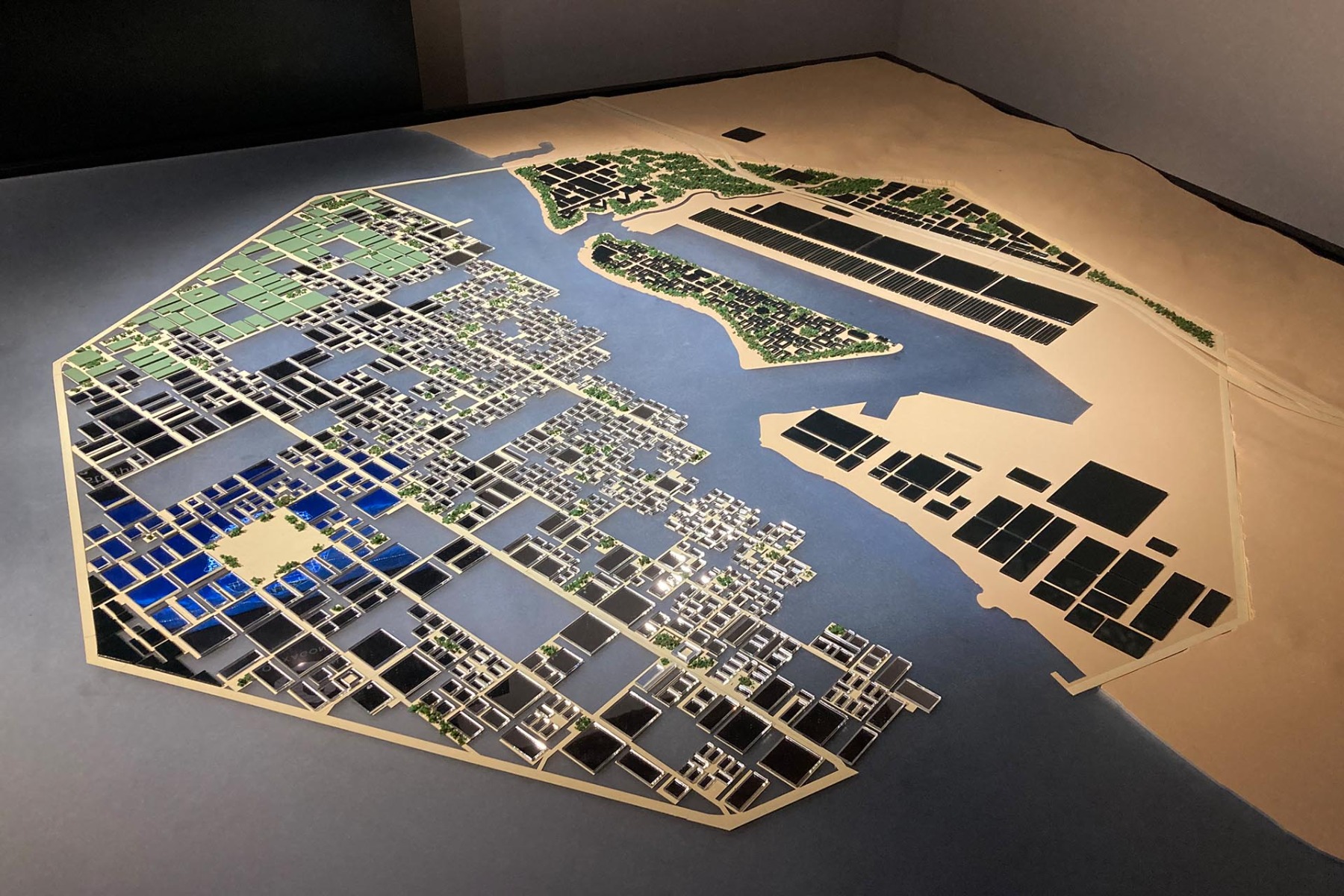Architecture Biennale 2023 – national pavilions
Self-Reflection, Diversionary Tactics and Real Science Fiction

The German pavilion, © Frank Kaltenbach
Yes, a trip to Venice is worthwhile and yes, there is architecture to be seen there as well. This year, the city is worth visiting primarily as a way to become aware of the diversity and inconsistency of our complex world as presented over a limited space. As far as that goes, Lokko’s title The Laboratory of the Future has been addressed by the participants – to a certain degree at least. Admittedly, at some pavilions we would have liked to see concrete, future-oriented projects in technology and architecture that already exist. Too often, the contributions focused on inventories of failings such as the destruction of the landscape via excessive use of drinking water, barrenness of the soil brought on by monocultures, unsustainable food production as well as the exploitation and expulsion of the world’s last indigenous peoples, from the Sámi of Scandinavia to those who dwell in the jungles of the Amazon.


Golden Lion for the Brazilian pavilion, © Matteo de Mayda - Courtesy La Biennale di Venezia
Golden Lion for the Brazilian pavilion
According to the assessment of the jury led by OMA partner Ippolito Pestellini Laparelli, the Brazilian pavilion was most successful at depicting the dichotomy between relevant content and aesthetically palpable design. Indeed, it was awarded the Golden Lion. Curators Gabriala de Matos and Paulo Tavares furnished the Modernist pavilion with flooring and tables of clay, thus making the concept of terra intuitively perceptible to visitors as a symbol of earth and territory alike. The installation corresponds with the exhibition, which addresses the destruction of the landscape inhabited by indigenous peoples due to the development of the capital, Brasilia, and questions the city’s status as a World Heritage Site.
The German pavilion
In contrast, the German pavilion is a materials storeroom with a repair workshop attached. The curatorial team of Arth+, Summacumfemmer and Juliane Greb have collected the gutted furnishings of previous Biennali and used QR codes to catalogue them in a databank of materials. Could it be a model for the approaching circular building economy?


Repair workshop in the German pavilion, © Matteo de Mayda - Courtesy La Biennale di Venezia
The Chinese pavilion
Growth behemoth China relies on understatement and is showing small, retroactive densification projects. Decolonization? Hardly. The ecological, economic and social consequences of the Three Gorges Dam or the New Silk Road initiative, China’s colonialist development of African infrastructure projects, get no mention at all at this Biennale.


Pavilion of Ukraine, © Matteo de Mayda - Courtesy La Biennale di Venezia


Pavilion of Ukraine, © Andrea Avezzu - Courtesy La Biennale di Venezia


The Oxagon by BIG, © Neom
National pavilions
Despite the call for decarbonization, at the Palazzo Franchetti Qatar is celebrating its ceaseless enthusiasm for large museums by Western celebrity architects. Saudi Arabia even claims to have found the solution to decarbonizing large cities. The Abbazia de San Gregorio is showing the design competition for Neom, a 150-km-long, 300-m-high linear city that will function without cars and operate completely with renewable sources of energy. The renderings of the canyon-like cityscapes prepared by Morphosis, UN Studio, DMAA, Lava, Pei Copp, Fuksas, Coop Himmelblau and David Adjaye are reminiscent of scenes from a science-fiction film. The first section of Neom, which will accommodate 250 000 residents, is already under construction, as are the associated octagonal SolarCity by BIG and the ski resort located on a mountain in a desert of lava featuring eco-friendly artificial snow.
Event: 18th International Architecture Biennale Venice
Exhibition dates: 20. May until 26. November 2023
Exhibition venue: Venice (IT)
Event programme: Carnival – Programme




